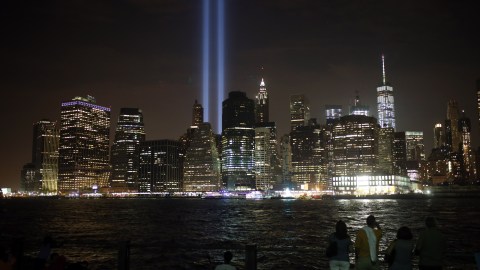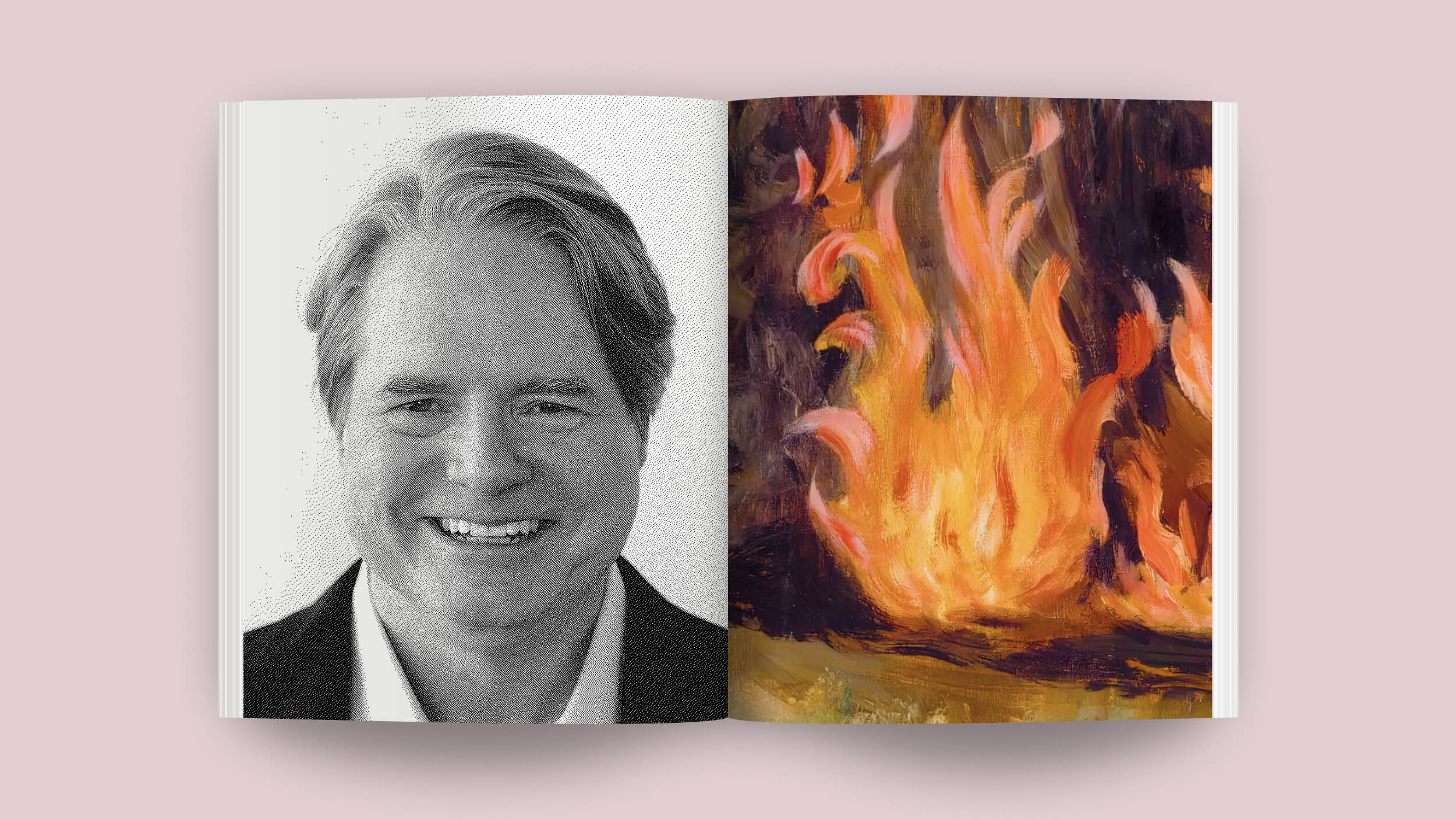What should you do on 9/11? Tell someone where you were.

Mohammed Elshamy/Anadolu Agency/Getty Images
When talking with others about the events of September 11th, there is a strong tendency to want to share our story. Everyone remembers where there were, what they were thinking, and the sequence of events that transpired. It’s been nearly 15 years, but the memories are forever imprinted in our minds, still fresh despite the passing of time. And when we get together, when we talk about 9/11, we are compelled to recount our experience in detail and hear the experiences of our friends, coworkers, and acquaintances. Why do we do this; why do we need to talk about it; and why is it so important that we do? It’s in our makeup.
When we as a tribe, as a nation, as a people undergo a collective trauma, the need to express our emotions and achieve a secure connection is shared, universal.
Our ancestors had an advantage over the taller, bigger-brained Neanderthals: the ability to form groups and socialize. By banding together, we had a greater chance of survival than going at it alone. As our brains developed over the next several thousand years, new sections at the front of the brain started to form, parts that helped us understand how to communicate, socialize, empathize, and feel compassion. Feeling like someone understands our feelings or experience is beneficial for the whole tribe.
When we personally undergo a trauma, the need to talk about it in a safe environment, to have our emotions mirrored, is paramount to the healing process.
If we’re all supporting one another as a group, there is a great chance our group will be resilient. And when we personally undergo a trauma, the need to talk about it in a safe environment, to have our emotions mirrored, is paramount to the healing process. Josh Korda, a meditation teacher and expert on emotional regulation, recently wrote that “emotional connection, based on eye contact, reassuring expressions, safe, reassuring embraces, are as essential to psychological health as food and exercise is to the body.”
When we as a tribe, as a nation, as a people undergo a collective trauma, the need to express our emotions and achieve a secure connection is shared, universal. Repressing our feelings leads to anxiety that comes out in the form of insomnia or panic attacks, but acknowledging our anxiety and holding it lets us process it. The need many of us have to share our 9/11 story is a healthy and human response to tragedy. So if someone needs to talk about it, listening to them might help you both as we still struggle, years later, to make sense of the senseless. It may even help the resiliency of our tribe.
***
Lori Chandler is a writer and comedian living in Brooklyn, NY, which is the most unoriginal sentence she has ever written. You can look at her silly drawings on Tumblr, Rad Drawings, or read her silly tweets @LilBoodleChild. Enough about her, she says: how are you?





